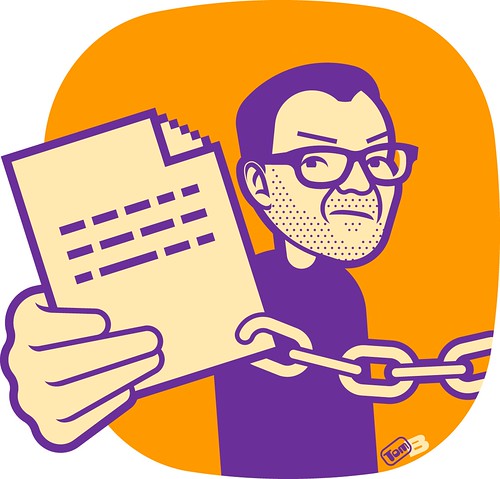The right to (be) content
Posted: January 10th, 2011 | Author: David Dreshfield | Filed under: Tech | Tags: Ars Technica, digital media, DRM, piracy, UltraViolet | No Comments »A new post up at Ars Technica talks (almost) universally-compatible DRM:
At CES today, the Digital Entertainment Content Ecosystem announced more details of its “buy once, play anywhere” cloud-based authentication system for digital video content. The scheme, which was dubbed “UltraViolet” last year, will allow users to purchase video content from any participating retailer and then authenticate that content on any UltraViolet-compatible device.
UltraViolet will support six accounts per family, each of which can access the full set of family-owned video content, and it will support 12 unique devices per family. That might sound like plenty, but DECE envisions UltraViolet content being displayed on Internet-connected TVs, game consoles, smartphones, computers, Internet-connected Blu-ray players, tablets, and set-top boxes.
While this seems like a fine development on the face of things, I have to echo some of the concerns raised about it both in the article and in the comments section. First, the Ars take:
All of this could have been accomplished years ago by just selling the video without DRM, like the music industry finally did, since anyone interested in pirating the content had no difficulty in doing so anyway. But DECE and UltraViolet look like a decent second option, and people have shown their willingness to put up with DRM when it doesn’t get in their way (Kindle, iPhone apps, iTunes video, Xbox games). […]
Still, we’re quite curious to see how this works out in practice, especially without Apple’s support. The paranoia that Hollywood has shown for so many years around tight DRM, broadcast flags, and more makes us suspect that UltraViolet will be locked down tightly enough to be annoying, despite DECE’s many protests about openness. But we’re willing to be surprised by sanity.
I, for one, am not holding my breath, for precisely the reasons mentioned here. Paraphrasing one of the commenters on the article, do we really want the people who took over a decade to figure out a remotely equitable rights-management and authentication scheme to be the same ones governing said scheme across multiple platforms and media production outlets?
Nor is this scheme even a global panacea. Of particular note was this commenter’s critique of the still extant “regional” distribution model:
Read the rest of this entry »